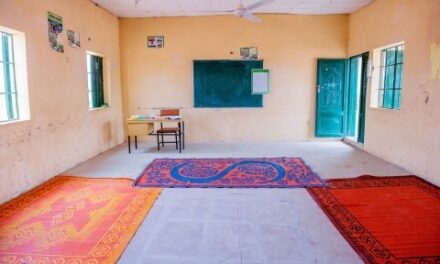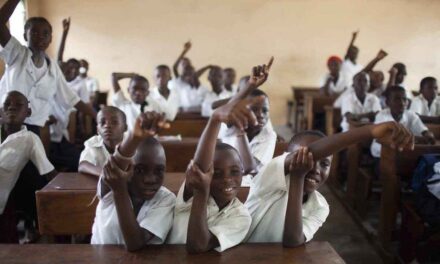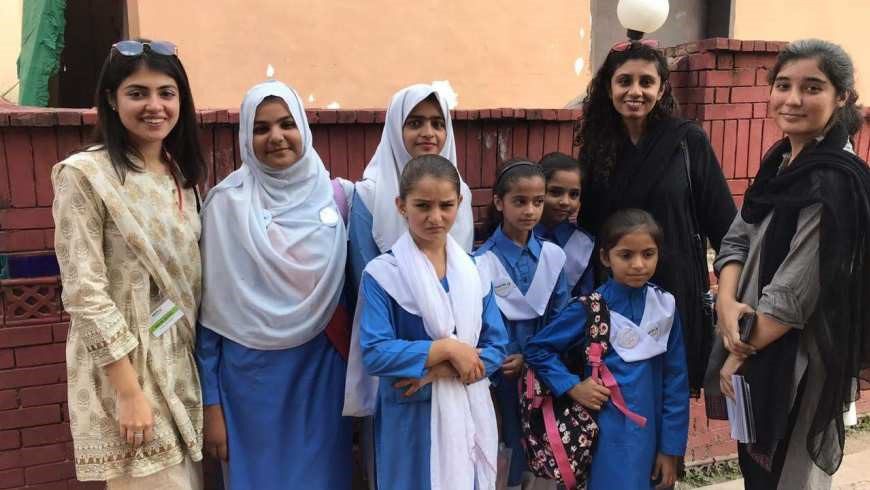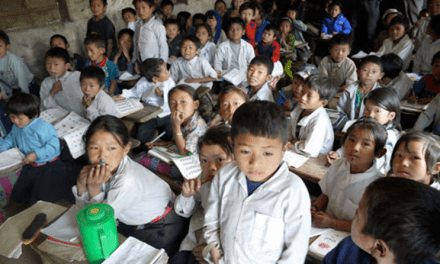This blog was written by Emma Smith, Senior Careers Reporter of Devex. It was originally published on the Devex website on 27 May 2020.
Around 90% of the world’s schoolchildren were confined to their homes in April, and if history is any indication, many girls won’t return to school once lockdowns are lifted.
As a result, the coronavirus pandemic could threaten decades of progress for gender equality and girls’ education, experts say.
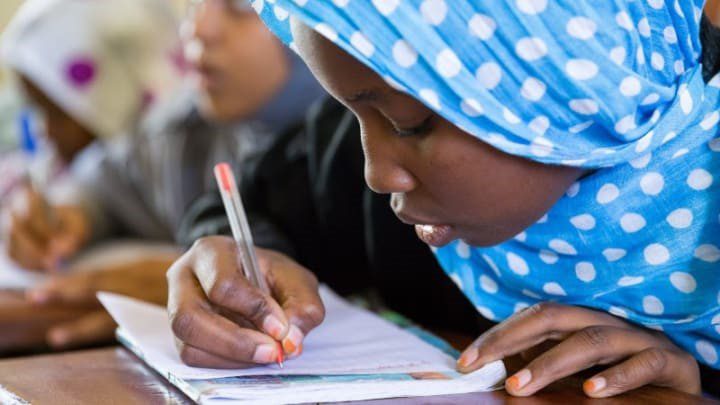
A schoolgirl at a primary school in Nouakchott, Mauritania. Photo by: Kelley Lynch / GPE / CC BY-NC-ND
They point to past experiences, such as school closures during the 2014 West Africa Ebola outbreak, which led to girls remaining out of school in Liberia, Guinea, and Sierra Leone.
Likewise, it can be a “real struggle” to reenroll girls in school after a poor harvest or flooding, said Safeena Husain, founder of Educate Girls, an organization that works to improve access to education for girls in India.
“Months of hard work convincing village elders and parents to send their girls to school can go to waste if an economic shock thrusts them back into extreme poverty,” she said. It is well documented that educating girls benefits entire societies, she added, and “by losing all the gains we have made in the last few years, the impact will be immeasurable.”
Husain and others say specific efforts need to be made now to minimize those risks and ensure that progress on girls’ education is not rolled back.
What’s driving this
Following a crisis, girls’ education is one of the first areas to suffer, in large part because of the rise in poverty, explained Linda Cole, founder of African Women Rising, an organization focused on educating and empowering women in Uganda. For many households, lockdowns have seen incomes and savings disappear, meaning they will simply not be able to pay school fees — and where they can, boys may be prioritized, Cole said.
Early marriages are then likely to increase among vulnerable families because the “bride price” they receive could help support the rest of the household, she added. In most cases, that means taking girls out of the education system permanently.
Since the beginning of the lockdown, there have been an “alarming number of stories” of girls being sent early to their marital homes and “straight into domestic servitude and sexual abuse,” Husain said. In these situations, “her likelihood of reentering a school is next to nothing.”
Daniel Molina, a gender and inclusion specialist for Plan International’s Americas office, told Devex that the current crisis could exacerbate levels of child, early, and forced marriage, as well as early pregnancy, which is already one of the top causes for girls dropping out of school in Latin America. That’s because in recent months, “the health sector has naturally prioritized the COVID-19 response, cutting all but little access to sexual and reproductive health services aimed at young people,” he explained.
Gender-based violence can also affect a girl’s access to education in the immediate and long-term. Molina said that information collected by Plan’s country teams indicates “there has been an increase of 20% of sexual violence against girls and women” in comparison to the same period last year, and their national reports also point to an increase of at least 25% in teen pregnancies in some countries.
Across all regions, gender norms mean that girls have also been burdened with additional caregiving and domestic duties. In times of economic hardship, it can be especially difficult to reverse this.
The time to act is now
Organizations are working hard to raise awareness about the importance of girls returning to school, but restrictions on movement and limited access to technology are just two of the challenges they face.
In Uganda, loudspeaker announcements are being used in some communities to spread the message, but it doesn’t allow for a two-way discussion so it’s problematic, Cole said. Community meetings would normally involve everyone who plays a part in a girls’ education, from local and religious leaders to parents and guardians, she explained.
Solutions must be locally led, said Lydia Wilbard, national director for Camfed Tanzania, but they must also be holistic and scalable to different communities.
During times of crisis, marginalized groups, including women and girls, tend to miss out on accurate information, so addressing this is key. Regular communication with families can help identify those who might be struggling with food or school supplies, which could deter them from sending their girls back to school.
Husain’s team has also been working to ensure that vulnerable families’ basic nutrition, hygiene, and sanitation needs are met, and is calling on the government to expand school meal schemes to accommodate children who have moved to villages with their families since the lockdown.
“By trying to mitigate the risk of families falling into extreme poverty … we hope to help mitigate the risk of those families keeping their children, especially their girls, out of school once they reopen,” Husain said.
Organizations are also working to provide girls with the resources they need for their studies during school closures. In some cases, this means delivering materials to households which can’t access educational programming delivered online or by television or radio.
New methods of distance education require access to and knowledge of digital media, Molina explained, which is not always equal between boys and girls. And while there is no data available yet, reports indicate that girls are experiencing increased online violence through these very tools, which can further “alienate them from education,” he cautioned.
Wilbard’s team at Camfed is incorporating life skills and well-being into the curriculum it is delivering to girls via radio or to small groups at a time. They hope this will continue when schools return in order to help girls navigate their experience. Husain is also advocating for greater focus on children’s mental health and emotional well-being as schools return.
“After such an emergency, governments and NGOs should be working closely together to ensure that all children get back into school, are fed, safe and happy,” she said.

